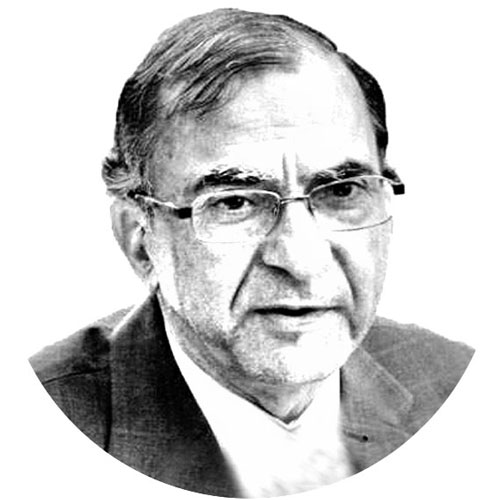Dr Ghulam Nabi Fai
MICHELLE Bachelet, the United Nations High Commissioner for Human Rights deserves an appreciation to acknowledge that, “A world with diminished human rights is a world that is stepping backwards into a darker past, when the powerful could prey on the powerless with little or no moral or legal restraint.” Ambassador Volkan Bozkir, the President of UN General Assembly assured to become the voice of the oppressed people all over the world when he said on 14 September 2020, “People in need or under oppression should feel that their concerns are being heard in the UN’s most democratic body.
I will work to bring the voices of the world’s people into our discussions.” “Ruled as the world is by certain dominant elements and the policies and postures issuing from their entanglements, it is hard to keep international attention focused on a people and their situation in the light, not of power strategies but of undying principles of peace and justice, the principles that were enshrined in the United Nations Charter and the Universal Declaration of Human Rights. In the case of Kashmir, a people were first turned into a dispute and then the dispute was consigned to oblivion. “Ambassador Yusuf Buch.”
The Universal Declaration of Human Rights (UDHR) on its 72nd anniversary needs to be analyzed objectively. Everyone knows that fundamental human rights are universal. The declaration knows no religious, national or political boundaries. And it is not hierarchical, like caste systems or monarchies. Everyone stands on the same plane when human rights are at issue. Even if all of its lofty provisions safeguarding fundamental human freedoms and liberties remain dishonoured on many parts of the globe, declaration still stands as a moral reproach to wrongdoing nations that may facilitate reforms.
It might be said that never have so many human rights been proclaimed yet been so routinely violated. Think of the ongoing human rights atrocities that are going unsanctioned. Myanmar, where Muslim civilian population is routinely driven from homes and cities are consistently destroyed. Tragic genocide in Syria. Death and destruction in Yemen. Denial of the Palestinian demand to exercise the right to self-determination. Kashmiris brutalized by 900,000 Indian military and paramilitary forces. The list goes on and on.
It is tragic that civilized nations have fallen from their lofty calling: namely, human rights for all mankind. There is a sad commentary on the state of human rights all over the world. It seems to me that until there evolves a generally accepted moral duty among peoples and nations to assist all victims of widespread human rights violations by force or other stiff retaliation, human rights enforcement mechanisms will operate haphazardly and whimsically for reasons unrelated to the harm to the victims or the villainy of the perpetrators. It is the job of all human rights champions and defenders to jump-start that moral evolution. If we were to judge the United Nations based upon its history of involvement in efforts to resolve international conflicts, the simplest answer is that it has been an enormous failure. The United Nations, of course, is a far more complex organization whose work covers such a wide range of activities that conflict resolution is really only one aspect of its work. Nevertheless, if we consider the fact that its fundamental mission was to be a means of preventing global catastrophes like the Second World War, then conflict resolution would have to be considered Job One.
Urgency of adding teeth to human rights is felt everywhere. On that count, the news is less auspicious. The United Nations should officially declare that under international law and human rights covenants, every government official is vulnerable to criminal prosecution in every nation in the world for either direct or indirect complicity in human rights violations. Every alleged victim of a human rights violation or his or her relatives should be entitled to sue the alleged official culprits in the World Court to make it clear that no body is above the law. —To be continued
—The writer is the Secretary General of World Kashmir Awareness Forum.










